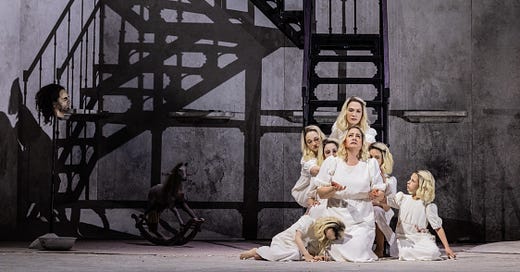Richard Strauss’s Salome is not an easy opera. Oscar Wilde’s interpretation of an obscure supporting character from the Gospels of Mark and Matthew as a psychodrama must have raised many eyebrows among respectable society at the turn of the last century (1891). Not so much because of his personal approach—which is artistically highly valuable—but because of the implications of dark, profoundly un-Victorian psychological phenomena that that same respectable society preferred to pretend did not exist. This, of course, was without reckoning with Sigmund Freud and others, but even so, it remained confronting for a long time.
Keep reading with a 7-day free trial
Subscribe to Leidmotief | Leitmotif to keep reading this post and get 7 days of free access to the full post archives.





